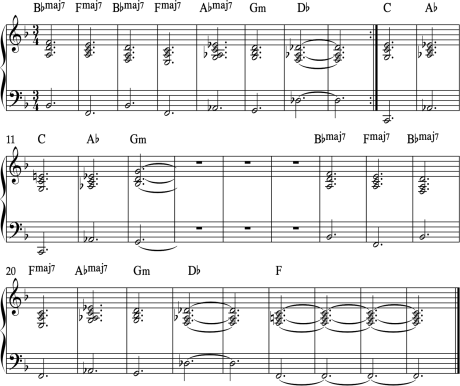Today’s guest writer is no stranger to my blog; Japanese pianist Yuki Negishi has written many articles chronicling her pianistic journey to date and you can read them in my Blog Archives, under Guest Post Series.
In this post, she describes her most recent project; the recording of her new album, Enigma. I’m both honoured and grateful that my piece Enigma (written for Yuki), features on this new album. Over to Yuki…
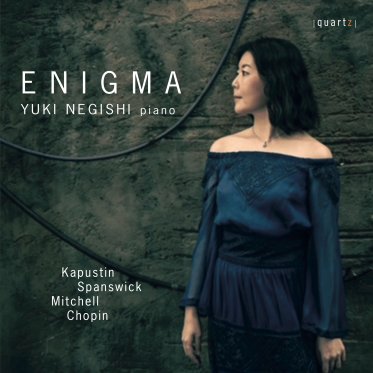
I have been performing for many years since graduating from the Royal College of Music in London in 2006. The idea of recording an album commercially wasn’t on my agenda for nearly two decades since then, not because I didn’t have enough pieces to record, but I wanted it to be something different and personal. I had, in fact recorded a CD in 2007, with the late Peter Katin, who I was having lessons with at the time, acting as my producer. I recorded selections of Schubert, Liszt, Debussy and Chopin with no intention of releasing the album commercially, though I did sell them at my concerts.
Enigma (from Simply Driven, published by Schott Music) is the title of the piece written for me by the esteemed British composer, writer and educator, and also a genuine friend and colleague, Melanie Spanswick in February 2019. It is a gorgeous, romantic and dramatic work, and was premiered two months later in Tokyo as part of Piano Week; I have performed it several times since then. Around the same time, I was obsessed with Nikolai Kapustin, the Ukrainian pianist and composer’s jazzy pieces – I was playing some of his Etudes Op.40, his Preludes Op.53 and I ordered more music by him to look at and study. His music is so much fun to play (and very difficult!!) and is absolutely intoxicating for me; I have always loved jazz, which led me to receive some lessons from one of the top jazz artists of our time, Robert Mitchell. I learned some basics from him, and how to build improvisation from just a few notes. This was back in 2007/2008. Unfortunately, I could not attend further lessons after this time, as I became increasingly busy with my own teaching and performing schedule. As fate would have it, I recorded Robert’s own poetic and reflective composition Our Hearts Dance the Infinite (as the Giant Puya Blooms), which was a world-premiere recording, 13 years later. This was commissioned by the London Sinfonietta in 2020, and is written for the left hand only.
I’ve always admired and listened to a lot of Bill Evans, particularly during the lockdown in 2020/2021. His impressionistic sound world combined with his unmistakable signature harmonies also became all-encompassing. I looked for arrangements of his classics such as Autumn Leaves, and it led me to Peace Piece, which immediately reminded me of Satie’s Gymnopedie: but even more, Chopin’s Berceuse with the consistent underlying left hand accompaniment combined with a free and embellished right-hand part. Therefore, I also wanted to include Chopin’s Berceuse in this programme, a piece which I have played since my student days, during a period which I refer to as my “Chopin phase”. To round off the recording list, I added Chopin’s Second Sonata in B flat minor Op. 35, another work that I have been performing multiple times since my teens; and which strikes a nice balance with Kapustin’s First Sonata Op. 39; both are about 20 mins long and contain four movements. The structure in Kapustin’s Sonata is separated into two parts; the 1st, 2nd and 3rd movements as one block, and the Finale (4th movement) with its 7-minute plus length, acting as a full-blown Sonata movement on its own. In Chopin’s Second Sonata, the weight of the work lies in the very famous third movement, also known as the Funeral March (Marche Funebre), written two years prior to the rest of the Sonata.
This became my commercial debut album of contrasts and fusions; a jazz element on a very classical base, a combination of drama and passion versus poetry and meditation. There are plenty of virtuosic fireworks and weighty chords, as well as sensitivity and lyricism. The left hand features significantly, in Robert’s piece, of course, but also Melanie’s piece showcases the left hand with challenging semiquaver figurations throughout the piece. Kapustin’s left hand writing requires as equally demanding attention as the right, and Chopin’s Sonata includes many octaves in the left hand. The Berceuse and Peace Piece offer the left hand some respite, with their gentle nature, calmly staying in the background and giving way for the right hand to weave, improvise and soar.
Harmony and improvisation are the key to this album. I love the connection of harmonies and how they evolve and resolve. I also love spontaneity and the improvisatory nature of organic music. These are the things, along with rhythm, that draw me to jazz. Personally, I am terrible at improvisation, so you can imagine my astonishment and delight when I first discovered Kapustin; here is a classical composer, who writes out jazz to the note! As someone who has had a conventional and traditional classical training, this was right up my street. Melanie’s Enigma is rich with beautiful harmonies, Robert’s piece also explores more abstract but equally enthralling harmonies, and Chopin needs no introduction; he improvised and his harmonies, as they matured, influenced countless composers, from Scriabin and Rachmaninoff to Wagner and Szymanowski.
The music is most important in a recording, of course, but equally important is a good sound engineer. An album cannot be made by the performer/artist only. The roles of the sound engineer and producer are monumental, if not the most essential. I was fortunate to come across the sound magician, Michael Ponder. Michael’s excellent listening skills and his precision were both essential. He also gave me advice from his vast experience, which helped me focus on what was needed to create a top-class recording. Wathen Hall in St Paul’s School in Barnes, London was also recommended by him as a venue with a good Steinway D.
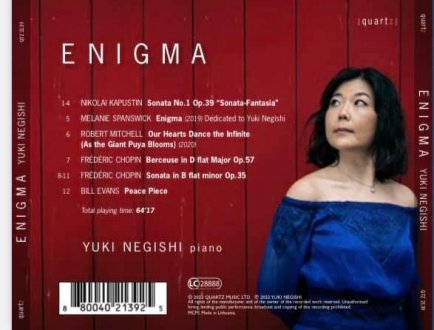
There were tuning issues in the first session in December 2019, and the school offered one extra free day to rectify this. I then had to pause the recording for 18 months during Covid before I could record again there (due to Covid restrictions at the school), this time with my newly added pieces – Robert’s and Bill Evans’. Michael was away when I was finally able to set a date in June 2021, and he introduced me to his trusted friend and colleague Adaq Khan, another wonderful engineer. A good partnership is always easy; they were both extremely professional and so easy to work with!
The recording was finally completed in June 2021, but it needed a home. I was introduced to the Quartz Music label, which was formed by the brilliant violinist Roman Mints. Their artist roster includes many artists whom I admire: from Katya Apekisheva, Alex Kobrin, Jack Liebeck to Evgeny Samoyloff and Boris Brovtsyn. I had also attended the CD launch of violinist Lisa Oshima in London a few years back when she released her Prokofiev album with Quartz. My introduction came from Michael, and my point of contact was Charles Padley, who was experienced in the recording industry as the former Naxos A&R Manager and who also worked for the BBC. We met one day to discuss the album, and the fact that he is such a pleasant and trustworthy person provided even more faith in the label. I signed immediately, and we worked on getting the album released in May 2022.
The album isn’t complete without a good booklet and photos. I approached Robert, with his poetic and creative use of words to write the liner notes for the album, which he said made it all the more special because this was his first commercial release of writing liner notes. He has written an original, engaging and insightfully deep liner notes for Enigma, the album. Melanie kindly wrote the story behind her piece for me, and as I wanted to have this released in my home country of Japan as well, I asked the distinguished translator/critic/writer Nahoko Gotoh (who writes for Bachtrack, amongst many other music journals and magazines) to translate the notes into Japanese.
And, finally, the London-based and much in-demand photographer, Matthew Johnson, who was introduced to me by my long-trusted friend and Artistic Director of Absolute Classics, Alex McQuiston, and Matthew’s assistant Ben, kindly agreed to do a photoshoot for the cover image. I must also mention Narelle Freeman, who gave me so much advice regarding the design aspects, and Katherine Camps Kilgour, who undertook all the PR related to the release. I’m also indebted to many friends and family members, who took the time to give me advice and assistance.
I would like to take this opportunity to thank Quartz Music and everyone mentioned above for their utmost professionalism and support to make this release possible.
Find out more about this recording and purchase your copy here:
Quartz Music
Apple Music
Spotify
Amazon Music
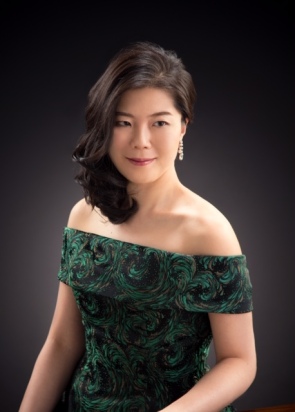
Yuki Negishi
My publications:
For much more information about how to practice piano repertoire, take a look at my piano course, Play it again: PIANO (published by Schott Music). Covering a huge array of styles and genres, the course features a large collection of progressive, graded piano repertoire from approximately Grade 1 to advanced diploma level, with copious practice tips for every piece. A convenient and beneficial course for students of any age, with or without a teacher, and it can also be used alongside piano examination syllabuses too.
You can find out more about my other piano publications and composition
from Melanie Spanswick
https://melaniespanswick.com/2022/05/15/the-recording-process-yuki-negishi/









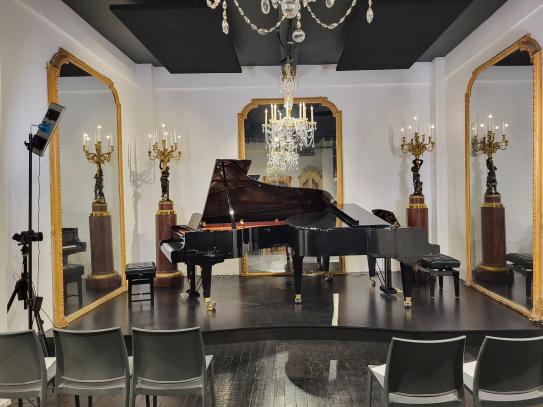


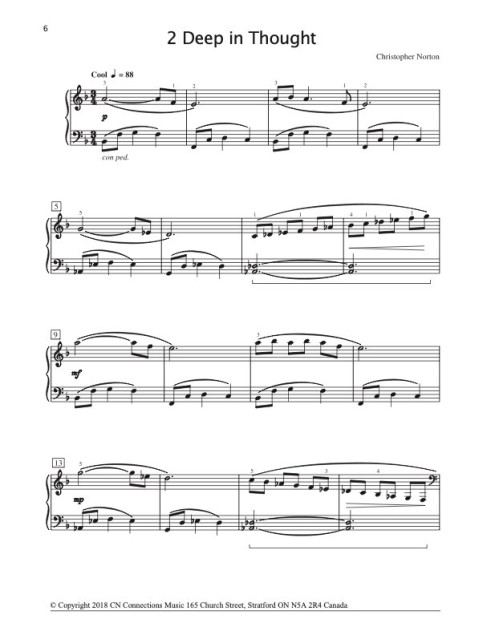
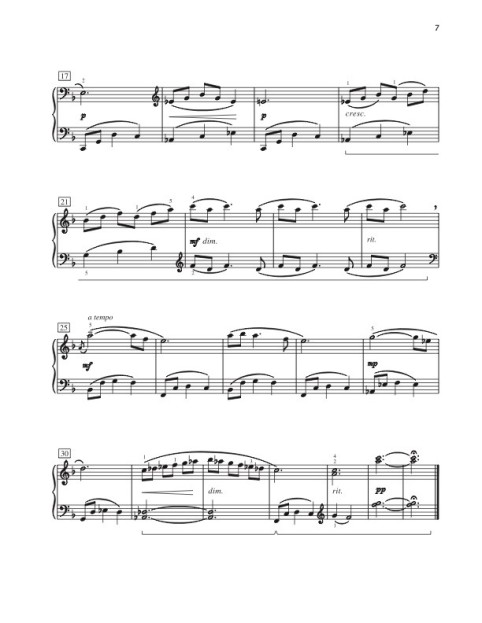 You can hear the solo piano part, here:
You can hear the solo piano part, here: 